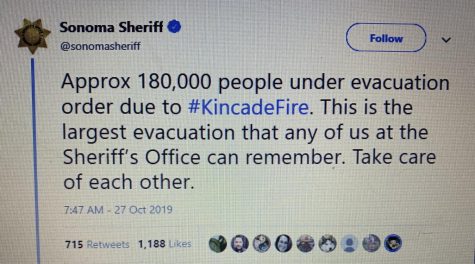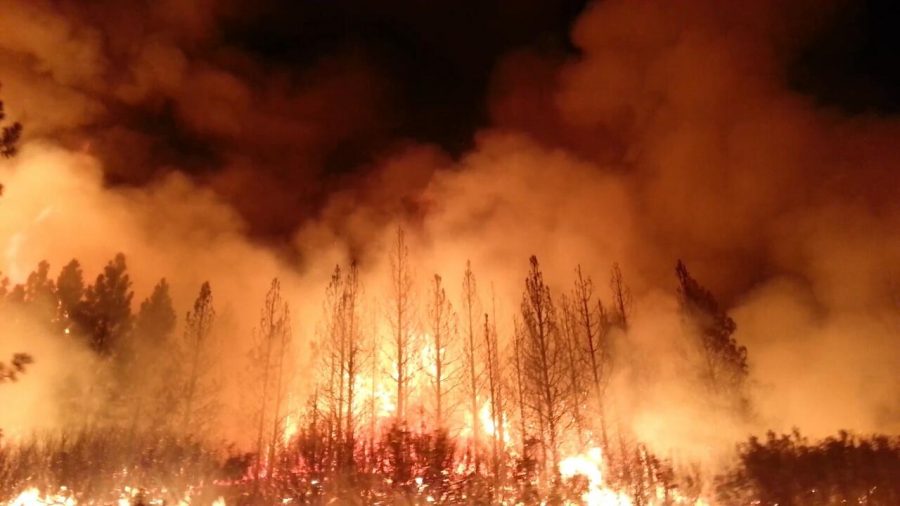Our Home is Burning
As wildfires ravish our Earth, we have to ask ourselves a question. When is enough enough?
USDA
The Rim Fire in the Stanislaus National Forest near in California began on Aug. 17, 2013 and is under investigation. The fire has consumed approximately 149, 780 acres and is 15% contained. U.S. Forest Service photo.
“Our house is on fire.” Since the beginning of time, the earth has been pummeled with extreme natural disasters that have impacted not only earth, but also humanity, in negative ways. One of the harshest natural disasters are wildfires, which are both dangerous and powerful.
Wildfires are one of the more common natural disasters, seeing as they are easily started and quickly spread. Once a wildfire starts, it rapidly catches onto the closest trees or shrubs, and it can be carried across large areas of land in a matter of minutes.
In the past year, the U.S. has been hit with a series of wildfires, most hitting California and the west coast. California has been battered with over 6,000 brutal fires, causing almost 200,000 acres of land to be annihilated. “This is the largest evacuation that any of us at the Sheriff’s Office can remember,” tweeted the Sonoma Sheriff’s department as the fires continued to rip through the Golden state.
Not only has the land of California suffered, but the citizens of California have also had their lives shaken up. Over 700 buildings and homes have been destroyed, and three fatalities have been reported.
In the month of November, almost 180,000 people have been asked to evacuate their homes, and a firefighter was seriously injured during the evacuation process. “This is the largest evacuation that any of us at the Sheriff’s Office can remember,” tweeted the Sonoma Sheriff’s department as the fires continued to rip through the Golden state.
Climate change has been an ongoing problem that has caused several catastrophes all over the world. It has caused ice caps to melt, forests to burn, temperatures to rise, and the population to decrease. Animal populations have steadily decreased, as their habitats are either burning or melting. The average world temperature has slowly risen over the past decade, and is expected to continue to rise, unless we change our ways.
Climate change is one of the biggest factors in starting wildfires, and our fire problem will not be fixed until our climate problem is fixed.

Abbey is a sophomore, and this is her second year writing for the paper. She is on the NA majorette team, and she competes on the Sensations majorette...


